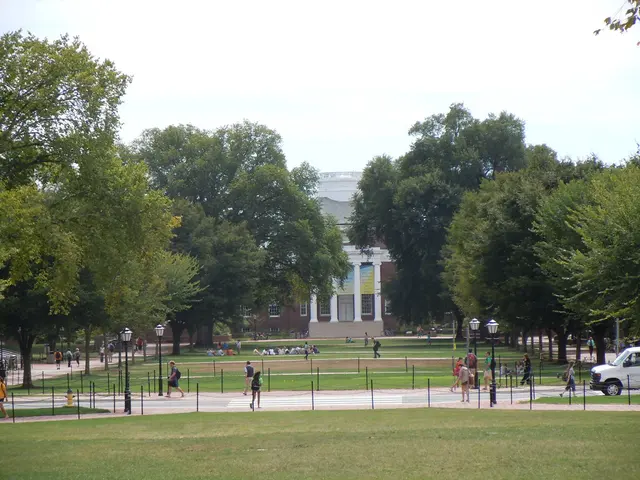Overwhelmed: Deportation Center Turns Away Inmates Due to Staff Shortages
Denied access to numerous detainees - The detention facility rejected numerous inmates' requests for deportation.
Hey there! Let's dive into the recent situation at Büren's deportation detention center.
The facility found itself in a bind, having to turn down dozens of requests for accommodations for individuals subject to deportation over the past few months. Why? The daily intake capacity was always reached, as confirmed by the Ministry of Refugees in response to an inquiry from the SPD fraction.
Now, the catch is that they've only been keeping stats on this since June last year. Shockingly, during this period, they've had to turn away potential residents on 28 days due to the current intake capacity being maxed out. Twice, this was due to medical concerns. Interestingly, during the last five days of January, the center ended up having vacancies ready for a planned deportation flight.
In a letter to the state parliament, the Ministry of Refugees emphasized that "individual cases requiring special attention are prioritized for accommodation," hoping that such potential rejections can be served the following day.
Now, what happened to those in need of lodging who couldn't find a spot in Büren? Well, the city of Düsseldorf stepped in, housing deportation detainees in facilities in Hesse and Rhineland-Palatinate due to a lack of space in Büren. But it wasn't a space issue, rather a staffing one: "Certain groups of people require additional care, necessitating more staff for accommodations," the ministry explained to the SPD inquiry.
To alleviate the staff crunch, eight additional positions have been planned in the budget for Büren. At the moment, police officers from a 100-strong unit in Bielefeld are offering assistance through a request to the Ministry of the Interior. As the ministry last reported to the Integration Committee of the state parliament, the "maximum occupancy capacity" in the deportation detention center was 175 places in the first quarter, with an average of 123 places occupied.
The SPD's Deputy Chairwoman, Lisa Kapteinat, expressed concerns about the situation, saying, "Apparently, it was not possible to admit people into deportation detention for four weeks. The exact capacities at each time are not clear. For coordination between authorities, this isn't an ideal indicator function. This situation once more highlights that the state government is clueless when it comes to asylum policy."
Now, you might be wondering why staff shortages occur in detention facilities. Here are a few factors that can contribute to this issue:
- High turnover rates and recruitment challenges
- Challenging working conditions
- Limited funding for staffing
If you're interested in learning more about the Büren deportation detention center or determining if it's facing a specific staffing crisis, it might be beneficial to consult local news sources or official reports from the facility or relevant government agencies. Stay informed and stay knowledgeable!
In the wake of staff shortages, the community institution of Büren's deportation detention center has been unable to admit potential residents for four weeks, consequently, the industry of finance, specifically banking-and-insurance, has stepped in to provide additional funding for hiring more staff. Additionally, it's crucial to understand that other community institutions might face similar issues due to high turnover rates, difficult working conditions, and limited funding for staffing.




